Shortly after the Maple Leafs introduced Craig Berube as their new head coach, the Calgary Flames and Marc Savard, who worked with Berube in St. Louis during the 2019-2020 season, announced a mutually agreed upon parting of ways.
Perhaps it was a coincidence, but the Leafs should be in the market for assistant coaches after bad special teams play on both sides of the ice. The connection with Savard is clear, so it’s worthy of discussion.
Savard was an assistant with the St. Louis Blues for one season, overseeing a power play that ranked third in the league. It was the season right after the Blues won the Cup, and Vladimir Tarasenko played all of 10 games, but they still found a way to boast an elite unit featuring Alex Pietrangelo, David Perron, Ryan O’Reilly, Jaden Schwartz, and Brayden Schenn.
Perron led the Blues in power-play points with 27 (and he’s a pending UFA). It was a 1-3-1 power play like most teams run in the league, with Pietrangelo up top and Perron and Schenn on the half-walls, with ROR in the bumper and Schwartz around the net. They ran it up top between Pietrangelo, Perron, and Schenn – the three would rip the puck around to each other, looking for one-timer opportunities and cross-seam passes. If those were taken away, they would bump it low to Schwartz for a counterplay. It was simple, effective, and successful, although interestingly, between Pietrangelo in St. Louis and Mackenzie Weegar in Calgary, Savard has worked with some big shooters at the point, which the Leafs don’t currently possess at the moment.
Savard moved on to try his hand at head coaching in the OHL with the Windsor Spitfires. In his two years behind the Windsor bench, the Spitfires led the league in goals in both seasons (with the league scoring champion on their roster in both years).
In Savard’s first OHL season, the Spitfires went all the way to the finals led by Wyatt Johnston. In the next season, Johnston made the NHL, but the Spitfires still finished first in the regular season. In the first round of the playoffs, they were not only upset by the eighth seed but also swept. Of note, Windsor played a Kitchener team with more NHL draft picks and more veterans than them (traditionally, older teams win in the OHL, much like in the World Juniors and NHL playoffs, for that matter). How much of an upset it was is up for debate, although a sweep was still a shocking result.
In the summer after the Spitfires were swept out of the playoffs, the Windsor Star reported the following when Savard left Windsor for an assistant coaching position in Calgary:
“I interviewed for a couple of head coaching positions and it came back to the same thing,” Savard said. “Not enough experience.”
Savard said he spoke with two teams about a head coaching role, but was also approached by ‘four or five teams’ about becoming an assistant coach.
“I love Windsor and the question was, ‘Should I go back and try to win again or go to the NHL and get acclimated to the fastest game,’” Savard said. “I think this is my best chance.”
Savard again oversaw the power play in Calgary and contributed to the team’s overall offensive attack. The 2023-24 season was tough for the Flames, but there are a few things worth noting.
The team started slowly under a rookie head coach (2-7-1 in their first 10 games of the season). By the time November rolled around, Nikita Zadorov was calling out teammates for playing for themselves while his agent publicly requested a trade, noting frustrations over ice time. Elliotte Friedman reported the following barely a month into the season:
“The other thing that happened in Calgary this week came from their captain Mikael Backlund. From what I understand, Backlund spoke to some of the players. I don’t know if it was in a group or if it was one-on-one, but he said “we have to end the noise.”
There are too many distractions around the team. Remember what happened last Friday night with [Nikita] Zadorov. He just said: “Enough of that. We have to concentrate on playing. If you don’t want to be here, let the general manager know and we’ll figure it out. As long as you’re here, no more noise, we have to play.”
It was a mess in Calgary, and the power play coach was the furthest thing from anyone’s mind at that point. While the power play ultimately ranked 26th, if we dig a little deeper, after the initial turmoil and trade chatter cleared up, the power play actually did start to roll. From Christmas onward, the Flames’ power play was tied for 12th in the league with the Leafs and the Predators. The Flames have nowhere near the scoring talent of the Leafs, nor do they have an elite offensive defenseman like Nashville’s Roman Josi or a player of Filip Forsberg’s calibre.
That’s an impressive turnaround amidst the turmoil of a team that underwent a firesale and clearly lacked high-end talent. In fact, three of Calgary’s top four scorers this season – Yegor Sharangovich, Blake Coleman, MacKenzie Weegar – all enjoyed career years. Their leading scorer, Nazem Kadri, put together the second-most productive season of his career. Coaches can only work with what they’re given.
When the Leafs hired Craig Berube, I flagged Savard as a potential AC due to his success alongside Berube, knowing coaches generally bring in assistants they’re familiar with. Savard has a good track record of successful offensive seasons and squeezing out extra production from his players. On paper, I think it’s a good hire.
Savard has some experience in the league now; Toronto would be his third NHL stop, which means he’s had some different looks to think through. You would like to think that he has learned some lessons and will continue to improve. He’s worked through experiences on a good NHL team, a bad NHL team, and as a head coach in the OHL. The more experiences, the better. Savard has had some wins in each situation.
Toronto is the place to put your name on the map for someone with head coaching aspirations in the league. Spencer Carbery was hired after his time as Sheldon Keefe’s assistant, and just before Carbery, Dave Hakstol went from an AC role with the Leafs to head coach of the Seattle Kraken. Coupling the exposure the Toronto market provides with the talent on the Leafs’ roster makes for a golden opportunity.
Other Notes: Kampf, Holmberg & Tavares at the World Championships, Manny Malhotra’s departure, and the plan for Easton Cowan
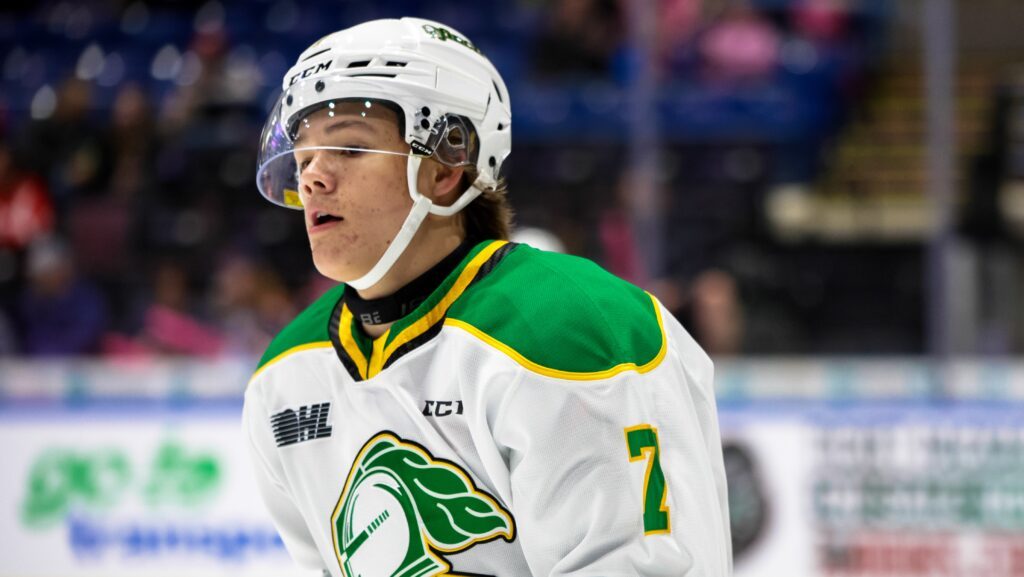
– Congratulations to David Kampf and Czechia on winning the World Hockey Championship. That tournament is a big deal in Europe – as evidenced by players like David Pastrnak, Martin Necas, and Pavel Zacha all flying back for it, even though they all played well into the second round in Boston and Carolina, respectively. It’s not to be overlooked.
In the games I watched, Kampf was excellent on what was effectively Czechia’s second line between Martin Necas and Dominik Kubalik. He produced seven points in nine games (and was +9!), including two points in the semis, where he beat Pontus Holmberg on an offensive-zone faceoff leading to a goal. He also scored the empty-net goal to seal the gold medal win.
Through the first four games of the playoffs, the Leafs’ fourth line was one of their better lines thanks to their cycling in the offensive zone (and Kampf scored a goal) to the point where Jim Montgomery started shifting around the matchup to adjust. Sheldon Keefe eventually moved Kampf up to match up against the Trent Frederic line, which was succeeding against the Leafs’ third line.
It was nice to see Kampf enjoy a great tournament and win the gold in his hometown. He takes a lot of flak in the market due to his contract, but he spent the vast majority of this season centering Noah Gregor, who will struggle to secure an NHL job next season, and Ryan Reaves, who is mainly an enforcer at this point. He was fed defensive-zone faceoffs on the line. It was a tough spot, to put it nicely, but there is a player here who can contribute to the team’s success.
– Pontus Holmberg also put together a fairly productive tournament while largely centering Lucas Raymond and Andre Burakovsky (effectively Sweden’s second line). He recorded six assists in 10 games.
I think it was noteworthy that Holmberg played center and also that he didn’t score – he has 12 goals in 91 career NHL games and just 81 shots on goal. We’ve said this before in this space during the season, but I don’t think he owns a good shot. It’s something he has to really work on.
In the playoffs, Holmberg went pointless in seven games and put six shots on net. The shot wasn’t a threat. Holmberg has good speed, can make plays with the puck, will go to the front of the net, and can work the corners. He didn’t look completely out of place alongside Matthews at points during the regular season as a winger. I think he has some ability to play in the middle, but it’s hard to do it full-time when he isn’t a scoring threat whatsoever, he isn’t an elite playmaker, and he isn’t a high-end defensive checker. All of those factors will push him to the wing – which is fine, but it’s important to slot players properly.
I also wanted to note that Holmberg was a regular on a Swedish penalty kill that was perfect in the tournament. He also started to emerge as a penalty killer for the Leafs last season. On a Toronto team lacking penalty killers, every little bit helps at this rate.
– Lastly, on the World Championships: John Tavares finished with 11 points in nine games and centered what was Canada’s best line between Pierre-Luc Dubois and Brandon Hagel. He scored a big late goal in the semis to send the game to overtime. He’s obviously not an $11 million player, but he is still a good one. Sometimes, it gets lost in the conversation about a player who scored 29 goals and 65 points in 80 games and was one of the best faceoff men in the league.
– Manny Malhotra officially left the Leafs organization to run a bench in the AHL in the Vancouver Canucks organization. Even before Berube replaced Keefe, it was always likely that Malhotra would leave after he was essentially demoted last season, but his son played for the Vaughan Kings and was in his minor-midget draft year, so it made sense that he stayed.
Malhotra originally started off his Leafs tenure coaching the power play, but it hit its annual spring tradition of falling off a cliff, so the organization brought in Spencer Carbery to oversee it (and it did the same thing yet again the next spring, but in the season after – still under Carbery – it was finally productive vs. Tampa Bay).
This season, Malhotra was no longer on the bench. But he did help them in the faceoff department, and since he was hired in the fall of 2020, the Leafs are second in the league in faceoff percentage as a team. We will see if there is any drop-off, but the team is slated to return its top three faceoff men (Kampf, Matthews, and Tavares).
– After winning the regular season MVP, Easton Cowan followed it up by winning the playoff MVP, becoming just the sixth OHLer to achieve both in the same year. Connor McDavid did it in his draft year and Mitch Marner did it in his draft +1 season (which is what Cowan replicated), while Brad Boyes, Corey Perry, and Justin Azevedo did it in their final year of junior.
Cowan is the same height as Travis Konecny, and there are some similarities in their games in terms of speed, penalty-kill contributors, some feistiness, etc. Cowan edged Konecny’s +1 production in points per game in the regular season, then followed it up with a monster playoff that Konecny didn’t enjoy. Konecny made the Flyers’ roster the following year and stuck for the full campaign, putting up a modest 11 goals and 28 points in 70 games (he produced 24 goals and 47 points the following season). It’s a good comparison and a model to follow.
At this point, failing a really poor showing in training camp/preseason, the Leafs have to prepare for Cowan to start next season on the NHL roster. That’s not to say he should be written on the roster in permanent marker or handed a spot for free, but he has nothing left to prove in the OHL and can’t play in the AHL.
Even if Cowan stays for the first half and the Leafs stretch out his nine games before sending him to the World Juniors, I think they should be preparing to have him around the team. That means, if nothing else, ensuring they can carry 13 forwards within their cap management. If he sticks beyond the nine games and/or becomes a full-time regular, that’s gravy.



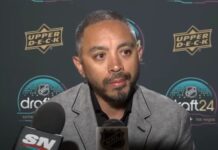
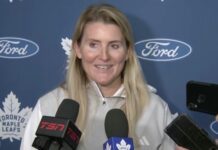







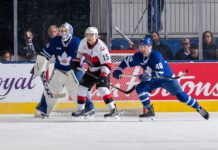
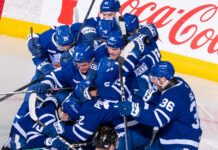



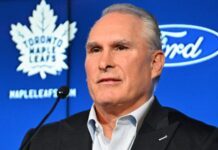
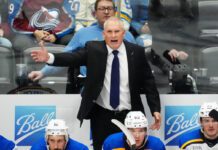


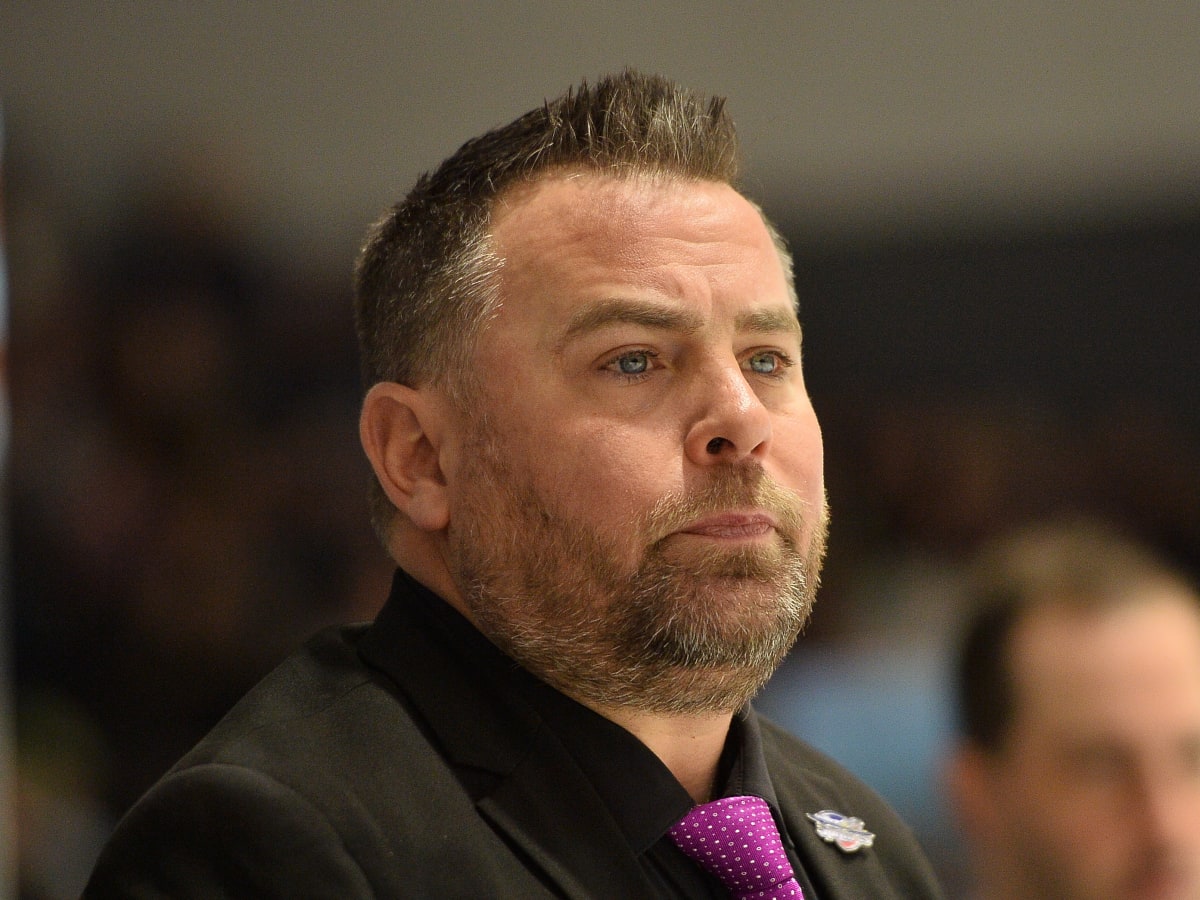
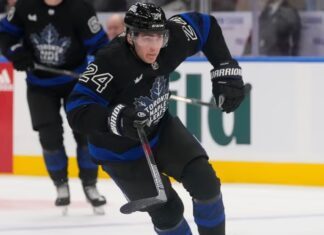







![New Leaf Anthony Stolarz on the opportunity in Toronto: “In Florida, I knew my role as a backup… Now, [Joseph Woll] and I are competing for starts… As a goalie, that’s all you can ask for” Anthony Stolarz, Stanley Cup win, now Maple Leaf](https://mapleleafshotstove.com/wp-content/uploads/2024/07/anthony-stolarz-sc-100x70.jpg)
